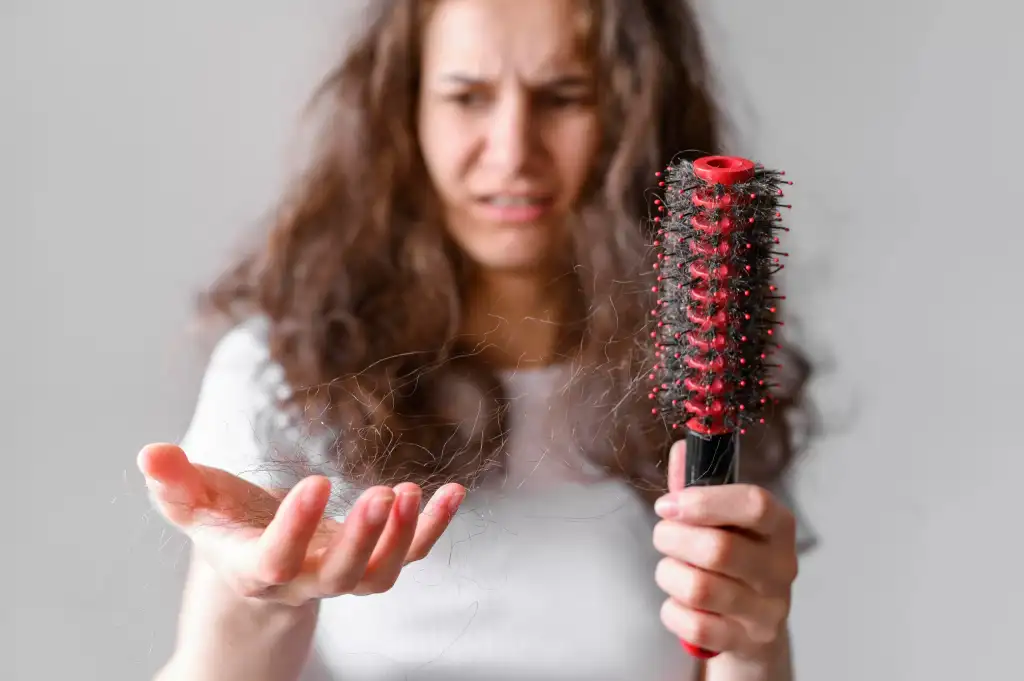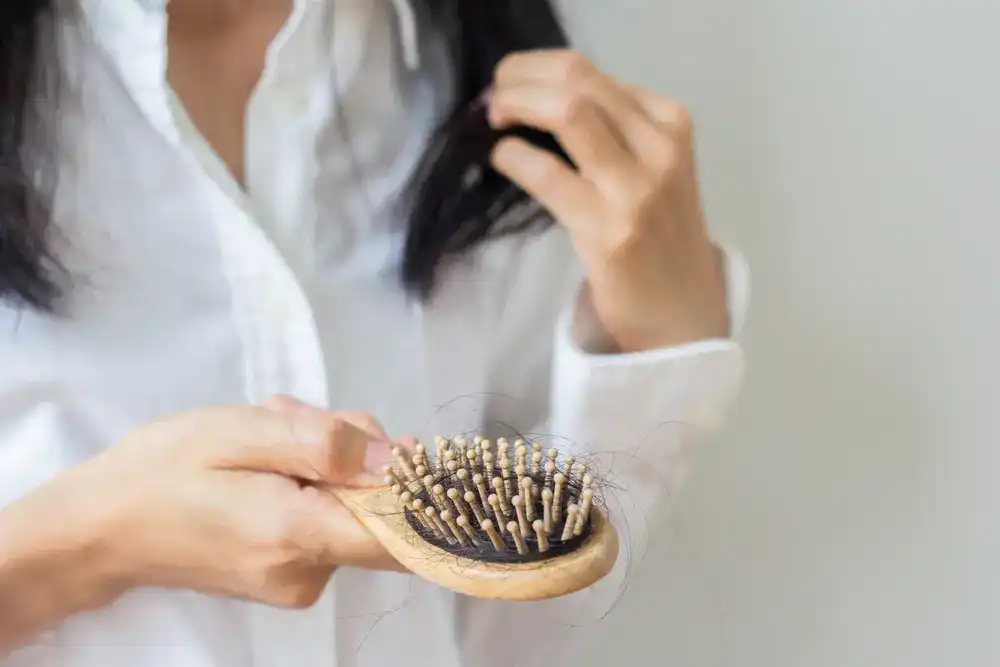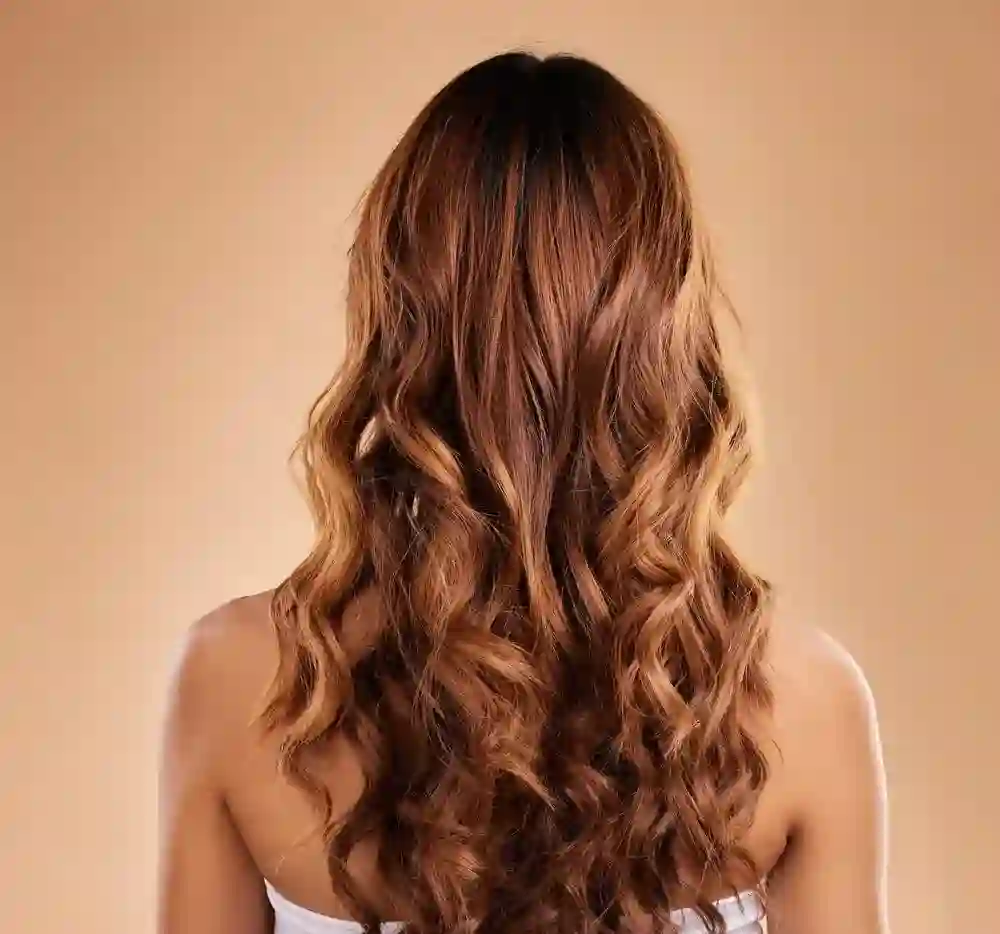Hair loss can be distressing for women, but understanding why it happens can guide you toward effective solutions. Let’s delve into the various reasons behind hair fall in females, exploring why it occurs and how to address it. Understanding these hair fall reasons in females empowers you to take protective steps to manage and reduce hair loss, promoting healthier, fuller hair. Let’s explore the common hair fall reasons in females and discover practical ways to fight it.

This is the most common type of hair fall reasons in females. It happens slowly over time and usually affects the top and sides of the head. Unlike men, who might get bald spots, women typically see their hair thinning all over, especially on the crown of the head. The hair might become finer, shorter, and less noticeable.
This type of hair loss occurs when something disrupts the normal hair growth cycle. One of the common hair fall reasons in females is treatments like chemotherapy, which target rapidly growing cells, including hair cells. As a result, hair falls out quickly and in large amounts. Fortunately, once the treatment stops, hair usually starts to grow back.
This happens when more hair than usual enters the resting phase of the hair growth cycle. Normally, hair goes through a cycle of growing, resting, and then falling out. With telogen effluvium, something triggers more hair than usual to stop growing and start resting, leading to noticeable hair shedding. Triggers can include stress, illness, surgery, or sudden changes in diet.
Understanding these reasons can help us find ways to deal with it. Different factors can cause hair fall reasons in females, from genetics to stress and health issues. By knowing about these common reasons, we can take steps to keep our hair healthy. Let’s break down these factors and learn how to manage them.

Hair loss can be passed down through generations. If your family members, such as parents or grandparents, have experienced hair loss, there’s a higher likelihood that you may also face similar challenges with your hair.
Hair loss can be passed down through generations. If your family members, such as parents or grandparents, have experienced hair loss, there’s a higher likelihood that you may also face similar challenges with your hair.
Being really stressed out can make your hair fall out. When you’re stressed, your body can push more hair follicles into the resting phase, which means they stop growing and start falling out. Finding ways to relax and manage stress can help reduce hair loss.
Your hair needs good stuff like vitamins, minerals, and protein to stay healthy. If you’re not eating enough of these things, your hair might suffer and start falling out.
Certain medical conditions like thyroid disorders, anemia, or deficiencies in vital nutrients can directly impact the health of your hair. Treating these underlying health issues is crucial for restoring hair health and minimizing further hair loss.
Using strong chemicals to dye, perm, or straighten your hair can damage it. These harsh treatments can weaken your hair follicles, making your hair more likely to break or fall out.
Some medicines you take for other health issues can cause your hair to fall out as a side effect. It’s important to talk to your doctor about any potential hair problems with your meds.
Pulling your hair back tightly into styles like braids or ponytails can put stress on your hair and make it break or fall out. Choosing looser hairstyles can help prevent this.
Sometimes, your immune system gets confused and starts attacking your hair follicles. This can lead to patches of hair loss, called alopecia aerate.
Scalp infections, like fungal infections (ringworm), can cause hair loss. Treating these infections is important.
If you have an infection on your scalp, like ringworm, it can mess with your hair growth and make your hair fall out. Getting rid of the infection can help your hair grow back.
Hair fall reasons in females can vary, but there are ways to manage and reduce hair loss. By making simple changes to your habits, taking good care of your hair, and using natural remedies, you can improve hair growth and get healthier, stronger hair. Here are some easy tips to help you combat hair loss.

A good diet is essential for having healthy hair. Make sure to include foods rich in vitamins and minerals like leafy greens, nuts, seeds, fish, and lean meats. These foods provide essential nutrients that strengthen your hair from the inside out. For instance, iron helps in carrying oxygen to your hair follicles, while proteins and vitamins like B, C, and D are crucial for hair growth and health.
High levels of stress are among the common hair fall reasons in females. Stress can push hair follicles into a resting phase, leading to hair fall. Effective stress management can be achieved through engaging in relaxation practices like yoga, meditation, or deep breathing exercises. Regular physical activity and hobbies that make you happy can also reduce stress levels, promoting healthier hair.
Being gentle with your hair can help prevent damage and reduce hair fall. Avoid using harsh chemical treatments and choose natural hair care products instead. For example, use natural colorants like henna instead of strong hair dyes, and try gentle methods for straightening your hair. Tight hairstyles like braids, ponytails, or buns can pull on your hair and cause it to break, contributing to hair fall reasons in females. To prevent this, avoid such styles and use a wide-toothed comb to gently detangle your hair, especially when it’s wet. Taking these steps can help maintain healthier hair and reduce the risk of hair fall.
Some hair fall reasons in female are linked to underlying health conditions such as thyroid issues, anemia, or vitamin deficiencies. Regular visits to your doctor can help diagnose and treat these conditions. By addressing these health issues, you can improve your overall health and, in turn, the health of your hair. Your doctor might suggest blood tests to check for deficiencies or hormonal imbalances that could be affecting your hair.
Consider using natural hair care products like Harish Neelambari Ayurvedic Herbal Hair Oil. This herbal oil is made from natural ingredients that nourish the scalp and promote healthy hair growth. Regular use can help reduce hair fall and improve overall hair quality.
Related: How To Oil Hair Properly: A Step-By-Step Guide To Stimulate Hair Growth
Understanding hair fall reasons in females is the first step to managing it effectively. By addressing the root causes and adopting a healthy hair care routine, you can achieve healthier, stronger hair. Whether it’s improving your diet, managing stress, or using natural products like Harish Neelambari Ayurvedic Herbal Hair Oil, there are many ways to support your hair health.

Don’t miss our future updates! Get Subscribed Today!
©2024. All Rights Reserved.
Develope and Design by